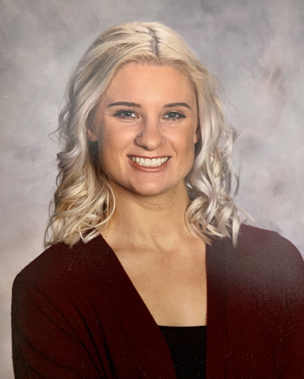
Hometown: Sicklerville, N.J.
Undergraduate: Montclair State University
Student's next step: Merck Pharmaceuticals (summer internship); University of Missouri Veterinary School (fall)
How did you first learn about Drexel's MLAS program?
My spring semester of junior year I applied to veterinary school to continue my education without taking a year off. However, I did not get in and started looking into master’s programs. Originally, I was focused on marine sciences, but my friend Samuel, who attended Drexel University, suggested the Master of Laboratory Animal Science program and the rest is history!
Why did you choose to apply to Drexel's program?
I chose to apply to Drexel’s program because even though I had applied to veterinary school, I personally did not think I was ready for that type of program; I applied to appease my parents. I knew my experience was limited to small animals and that this program would broaden both my knowledge and experience with a multitude of species that are used in a research setting. Not only does this program prepare you for veterinary school, but it also gives you the knowledge to take on regulatory and managerial roles within laboratory animal medicine.
What are you doing now/after graduation?
Once classes end, I will begin my summer internship at Merck Pharmaceuticals and then will attend veterinary school in the fall at the University of Missouri!
When did you know you wanted to become a veterinarian?
I know this will come off as cliché, but I knew I wanted to become a veterinarian at a very young age. As a child, I was fascinated with the Animal Planet Network and wanted to pursue a career in exotics. However, when I first began shadowing at Winslow Animal Hospital, the small animal orthopedic surgeon informed me that it is an extremely competitive field and staying open-minded was key to success in this profession.
Can you tell me how the program helped prepare you for vet school?
This program will prepare you for veterinary school especially if your undergraduate school did not specifically have an animal-related major. I really appreciated the Medical Microbiology course because, although her exams were tough, the course introduced me to new methods for studying that I can take with me to veterinary school. Additionally, you are given the opportunity to gain hands-on experience with rodents your first semester! I found this extremely helpful when I began my veterinary technician job at the University of Pennsylvania.
What area of veterinary medicine do you want to study when you graduate?
When I graduate from veterinary school, I plan on pursuing a residency and board certification in laboratory animal medicine! However, I plan on keeping an open mind because I know at any given moment, your interests could change when exposed to all of the different facets during your education.
Looking back, what was the best part of the program?
The best part of the program was becoming extremely close with both classmates and faculty members. Also, I really enjoyed the classes that we had to take because they were beneficial to our learning experience and were broad enough to supplement a career in veterinary school, research, regulatory, managerial, etc. Finally, the faculty members do everything in their power to see you succeed, whether that be helping you get a job or providing advice on how to handle a difficult class.
What is your relationship like with other students in the program?
My relationship with the other students in the program is great! When you enter this program, it may just be six of you like my entering class; those classmates become some of your best friends because you all have almost identical course loads. Additionally, it’s really cool to see everyone’s growth from the beginning of the program to the end because more than half of the class wanted to attend veterinary school, but now less than half have that aspiration because there is an abundance of opportunities within biomedical research. I know once leaving this program we will all keep in touch with each other!
What is your relationship like with the program’s faculty members?
My relationship with the faculty members in the program is great! Whether that be the program directors or individual speakers, they all want us to succeed because they were in our position once. The faculty are always readily available by email or after class if you have any questions. If you have hopes of going to veterinary school, make that known and start building your relationships early because three of my six recommendations came from Drexel faculty. Erin and Dr. Huneke are two of the best people I have ever met, and I can proudly say they genuinely want everyone in the program to succeed!
Do you have any advice for incoming students who are considering the MLAS program with the goal of attending vet school?
My advice for incoming veterinary students considering this program is do it! I am not the same applicant I was the first time around, and I am incredibly grateful. During my interview for the University of Minnesota, I was asked if I was happy that I got rejected my first application cycle. If I were fresh out of undergrad, I would have said no because I was so inexperienced with the profession, but after enrolling in this program, I proudly answered “yes.” I was happy because I gained more experience, I gained more knowledge, I gained friends and valuable assets (faculty members), and finally, I gained the confidence to know that I will make a great veterinarian one day. This program prepares you both mentally (animal-related courses, pre-veterinary minor, etc.) and physically (hands-on experience, jobs, etc.). So just relax, breathe, and go at your own pace because if you truly want something, you will get it!